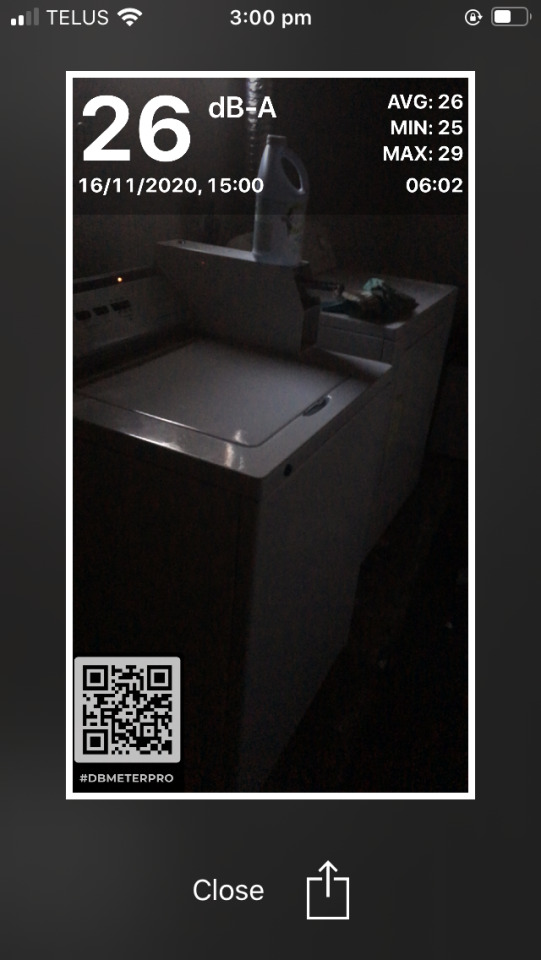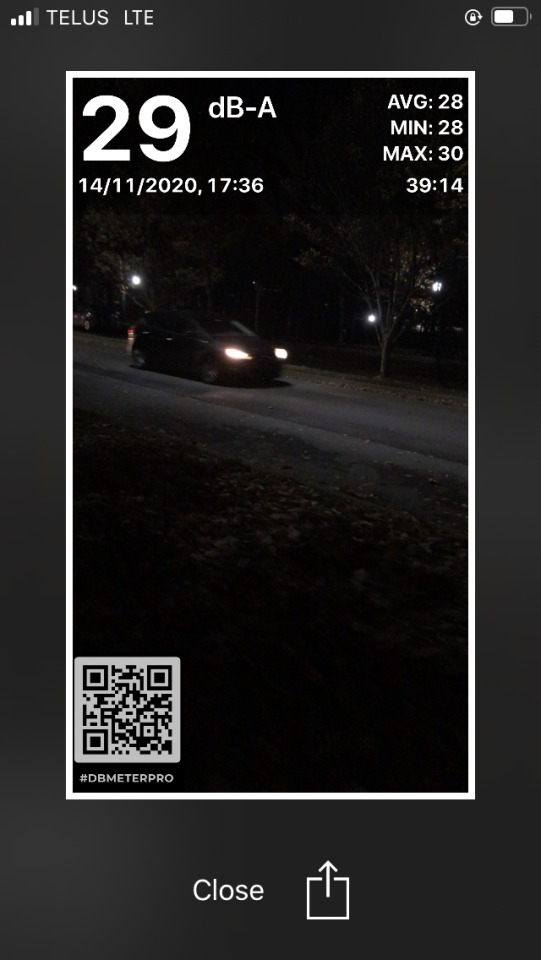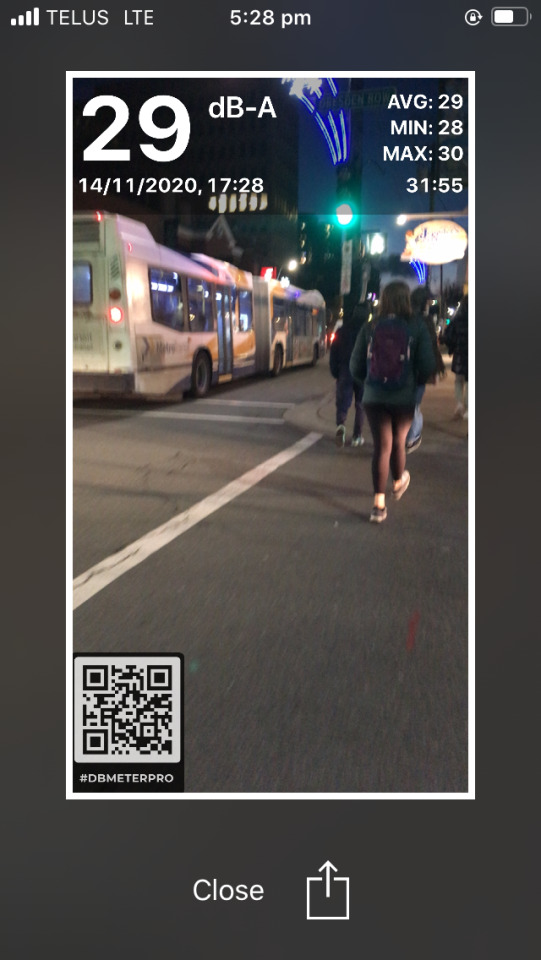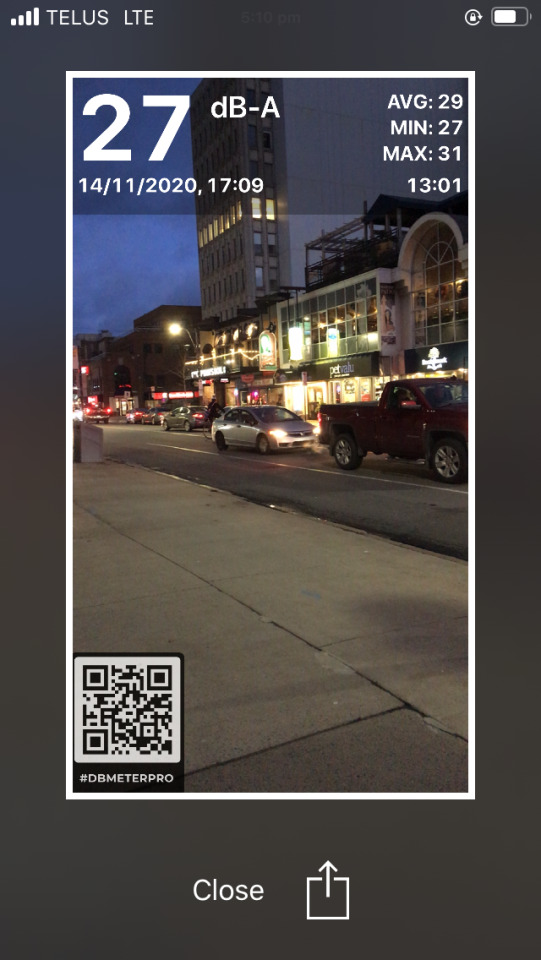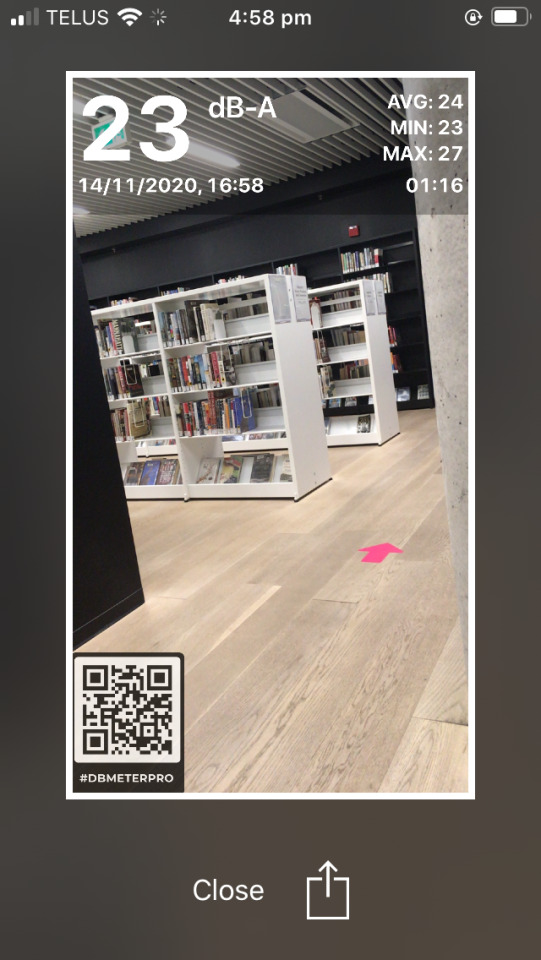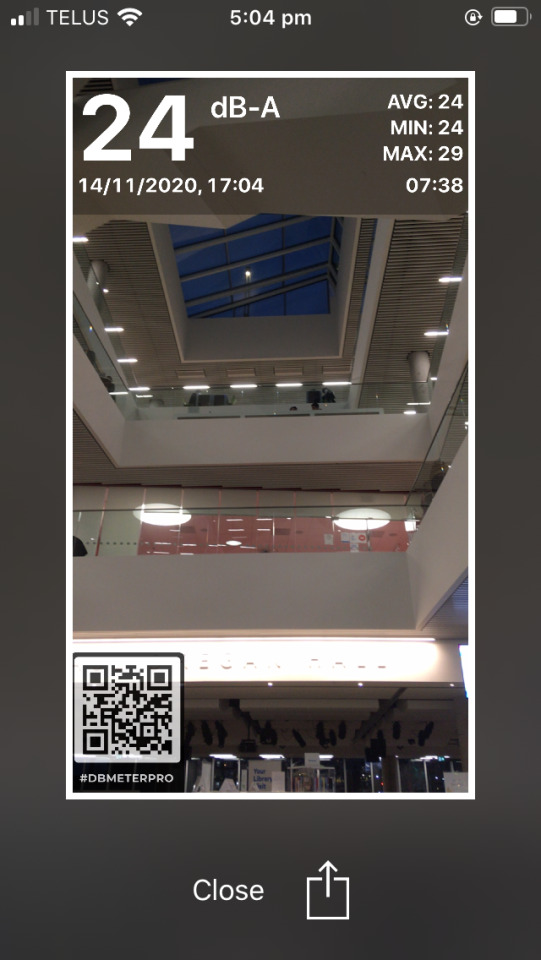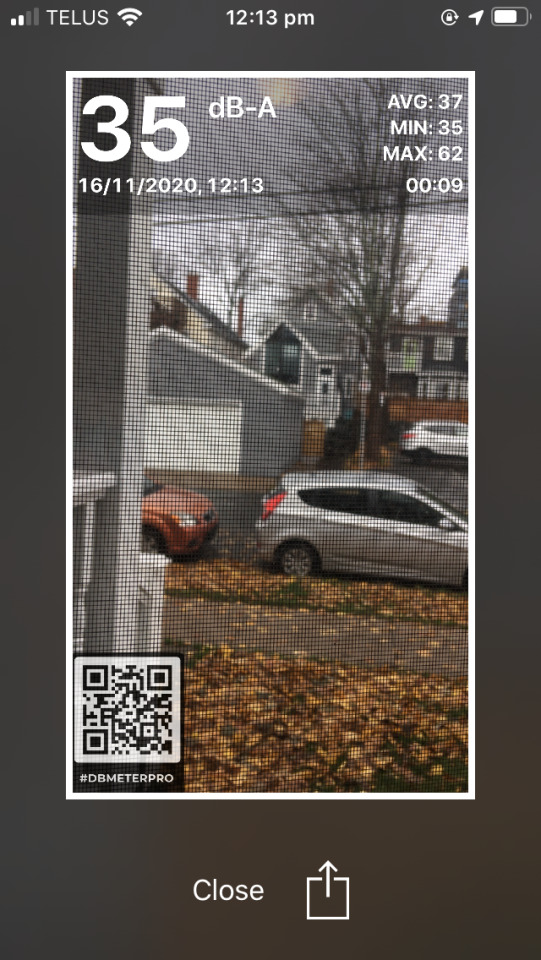Audio
0 notes
Text
Sounds Like
For this project I will be creating an audio document, similar to a podcast. It will address many problems rising from sound pollution. Speaking of how noise pollution impacts daily life, and discussing the broader environmental issues.
0 notes
Quote
"One day, mankind will fight noise as relentlessly as Cholera and the Pest."
Robert Koch 1843-1910
0 notes
Text
My Project
My project will consist of creating an audio experience which will strive educate and engage listeners. I will be focusing on the current problems surrounding noise pollution.
I have became more interested in working with sound from past audio experiments and learning experiences I have been given by podcasts. Audio projects have been something easy for me to connect to and learn from, so I feel drawn to use a similar process to educate others.
During my new experiences of living in a different city as well as living by the ocean, noise pollution has been on my mind. During my research I have found lots of scientific backing surrounding noise pollution from different perspectives. I will be focusing on the problematic impacts of sound on humans, and on different animals, such as bats and whales. Tying the effects of sound on different beings can be a way to engage humans, with different interests, in the subject of sound. When the conversations surrounding noise are highlight personal impacts through these discussions it can help us understand the true significance.
The examples of human audio repercussions are easy to comprehend and relatable, learning more about the human consequences can lead a way to understand the similar consequences for wildlife. I want to engage others in learning more of the ways sounds impact all of us.
There are many studies being done and there is extensive research taking place, but they have not been discussed in places that I tend to be engaged in. I hope to bring the issues up on a different platform, and create a new opportunity for new people to become engaged.
When presenting the research on noise pollution to a new group of people there is the potential to create even small personal impacts (even if it just teaches them about the impact of sound on their sleep cycle) and can advice listeners on small changes that can be made in daily life. I hope this work will also help listeners learn what larger problems need be be focused on, giving them a new understanding of the impacts of sound on the environment.
While developing the ideas for my audio project I have been testing the decibels I have been experiencing in daily life to try and understand my perspective more clearly, and to give personal examples to the decibels I will be discussing through my research process. During busy hours on the streets in downtown Halifax I am often picking up between 64-72dB, while working in the library I was picking up around 23dB, and in the grocery store closer to 29dB. To understand sound in a broader sense it has been helpful to learn that a thunderclap will register a approximately 120 dB and a siren will be from 120 to 140 dB. With scientific research clarifying that “sounds that reach 85 decibels or higher can harm a person’s ears”(National Geographic Society). I have also been reflecting on sounds we know are loud but don’t often take precautions around such as; “power lawn mowers (90 decibels), subway trains (90 to 115 decibels), and loud rock concerts (110 to 120 decibels)” (National Geographic Society). It is important to consider what we should be doing to protect our own hearing and notice when our hearing safety gets ignored.
The World Health Organization has estimated that: “by 2050 some 900 million people around the world will have disabling hearing loss — 93 percent more than those who do today — in part because of damaging levels of sound from personal audio devices” (How to Fight Noise Pollution (and Why Your Headphones Might Be Making You Deaf)).
As humans we are given the option of ear protection or using chosen sounds to distract us from obnoxious noises. I find the sounds surrounding me are very impactful. When personally reflecting on our experiences with sound, how does bring us to think about the animals experiences? Such as the whales experiencing difficulty with communication and continuously listening to loud boat engines.
There has been amazing research done about the changes that have occurred in the ocean due the the high noise levels. Whales have been starting to sing in different octaves to try and be heard, while nose pollution from drilling and boats impacts their communication. There are efforts being made to reduce noise pollution at sea; engines are being redesigned, companies are working together to reduce the number of trips in specific areas but there are still many impactful sounds that need to be addressed.
Many endangered species are being impacted in oceans as well as forests, all over the planet. “In the grand scheme of ocean ecosystem threats, climate change might be a bigger issue — along with acidification and pollution. But researchers worry that background noise will be the straw that breaks endangered species’ backs" (Ocean Uproar: Saving Marine Life from a Barrage of Noise).
Plans are also being impacted “since pollinators often relocate to quieter areas” (Human-Created Noise Pollution Impacts Wildlife). The impacts of sound are extensive and need to be seriously addressed.
There have been impactful articles, videos and a wonderful projects done at places such as the Noise Aquarium. Through my audio project I wish to keep pushing things forward.
When combining the gathered information and creating an audio file I hope to create a new way to bring people a better understanding and a different way to focus on the problems of noise pollution.
0 notes
Text
Timeline
-Examine auditory assessment apps
-Build on my current research/understandings (new readings, quotes, videos)
-Research at the library
-Continue with current readings and begin to pull out quotes I want to add to my recording
-Look up researchers in this field, look into contacting people over Zoom etc.
-Continue recording the audio of the environment I experience in daily life
-Explore Halifax for new audio (Motiv)
-Consider using the audio of others. Submitted by friends etc. from different areas
-Monitor the decibels in new locations -concert, by hospital, park etc.
-Record audio of myself, speaking of my research findings and audio issues (Rode mic)
-Record audio of personal experiences (Rode mic)
-Record interviews/street comments (Motiv)
-Add selected music?: Sound of Silence- Simon & Garfunkel?, Rock and Roll Ain’t Noise Pollution - AC/DC?
-Determine desired length of audio file/podcast
-Edit audio file
-Learn of ways of releasing my podcast to the public/submitting it to other sources to try and promote engagement in this issue
-Learn other ways of being engaged
0 notes
Text
Works Cited-With Notes
Works Cited-With Notes
Aquarium, Noise. “3D Audio Visual Experience of Plankton in Noise Pollution.” NOISE AQUARIUM, noiseaquarium.com/.
(Their website had a film underwater with audio of the waves, creatures, and boats. It was really impactful to be given the perspective of sound underwater, with visuals. It was an important addition to the well written research I have been studying)
Andre, Michel. The Research of Michel André, michel-andre.squarespace.com/lab.
(The LAB is looking for clear ways to respond to anthropogenic noise and developing sustainable power. Speaking of construction, oil and gas, as well as wind farms presenting a high intensity. Listing the physical, physiological and behavioural effects on impacted marine fauna, and speaking of how marine mammals have become “totems” of environmental awareness and sustainability, putting economically important activities at sea at risk.)
Basner, Mathias. “Why Noise Is Bad for Your Health - and What You Can Do about It.” YouTube, 26 Feb. 2019, www.youtube.com/watch?v=ewNTwBbLUhM&ab_channel=TED.
(Noise affecting sleep and health. Problems with construction, air conditioning etc. The benefits of silence)
Buxton, Rachel T., et al. “Noise Pollution Is Pervasive in U.S. Protected Areas.” Science, American Association for the Advancement of Science, 5 May 2017, science.sciencemag.org/content/356/6337/531.abstract.
(Speaking of noise pollution in the USA and the regulations in different National Parks. Speaking of sound problems being linked with “transportation, development, and extractive land”. It is interesting to learn about the doubled sound levels in 63% of the U.S. protected areas. Surpassing levels known to interfere with humans and animal life. When looking back at the National Parks I am familiar with, in Canada there have been obvious sound increases in these areas as well)
Carruthers, Tom. “Health Effects of Environmental Noise Pollution.” Curious, 8 Dec. 2017, www.science.org.au/curious/earth-environment/health-effects-environmental-noise-pollution.
(Speaking of sound impacts on personal human experiences- with sound creating “tiredness, impaired memory and creativity, impaired judgement and weakened psychomotor skills. raises blood pressure and heart rate, potentially mobilizing a state of hyperarousal.” . Impacting human health significantly. It was very interesting to learn all of the impacts it has on human health, before beginning to look into this I had only been thinking of sleep issues.)
Clifton-Ross, Jaime. “Human-Created Noise Pollution Impacts Wildlife.” NCC, 5 Feb. 2020, www.natureconservancy.ca/en/blog/human-created-noise-pollution.html.
(Speaking of animal communication. Including birds, fish, mammals, amphibians, arthropods, mollusks and reptiles. Very interesting to learn about normal behaviours being increased and now taking up more time and energy. As well as plants being impacted when pollinators relocate to quieter areas. It is helpful to learn about anything being done, so it is good to learn about BC Ferries working on the effects of underwater noise, protective measures being implemented in the Arctic, and international discussions around the increase of noise from shipping routes.)
Corporativa, Iberdrola. “Noise Pollution: How to Reduce the Impact of an Invisible Threat?” Iberdrola, www.iberdrola.com/environment/what-is-noise-pollution-causes-effects-solutions.
(It is very astonishing to learn stats that aren’t often spoken of. This article states that the according to the EEA “noise is responsible for 16,600 premature deaths and more than 72,000 hospitalisations every year in Europe alone.” Including problems from transportation and lack of sound proofing in houses.)
Jones, Nicola. “Ocean Uproar: Saving Marine Life from a Barrage of Noise.” Nature News, Nature Publishing Group, 10 Apr. 2019, www.nature.com/articles/d41586-019-01098-6.
(This was a very impactful article. Specifying specific problems and helping the readers understand some of the small details- such as the impact of engine speeds on sound. It explained the impacts of using air guns to map the ocean for oil drilling, and the sound levels of the drilling which can ‘reach the roar of a rock concert”. It is interesting to learn about the places that are currently trying to refuse new ports. While doing this kind of research it is so difficult to learn about the people doing amazing work to figure out what we can do next to decrease the sound of the ocean, while others are trying to build major transport routes to Asia. As Seger asks “How badly is humanity’s growing acoustic footprint damaging ocean life?”. The United Nations has noted that ocean health is an “urgent need” and many others have become involved, even shipping organizations. But “there’s still a gap in the science” . There have been obvious effects, such as dead whales showing up on shore.
It was very interesting to learn about the significant circumstance when researchers had the opportunity to study in 2001 after the attacks in NYC. They were collecting whale dung and were able to tell at that time that there was a decrease in stress hormones in the whales when transportation was halted after 9/11. It was “the first biological evidence that exposure to low-frequency ship noise was associated with chronic stress in cetaceans”.
Some changes are already being made, such as redesigned propellers, companies are working together and changes are being made.)
National Geographic Society. “Noise Pollution.” National Geographic Society, National Geographic Society , 15 July 2019, www.nationalgeographic.org/encyclopedia/noise-pollution/.
(Also stating all of the effects on humans, and listing simple things, such as lawn mowers, that have the power to harm humans. It is very interesting to learn that “many children who live near noisy airports or streets have been found to suffer from stress and other problems, such as impairments in memory, attention level, and reading skill”. This also started me thinking of the sounds where I live, and how when speaking of sounds in my work I want to make sure that this is clear to listeners so they can take this into considerations in their own lives. Many points about the ocean are re-stated. It is also interesting to learn that “environmental groups are urging the U.S. Navy to stop or reduce using sonar for military training”.)
Nguyen, Tram. Psychomusicology: Music, Mind, and Brain. American Psychological Association., 2014.
(This article was speaking about the sound of music also being a distraction. It is interesting which sounds are the hardest to hear at different times. When I am studying I don’t have a problem listening to cars driving by, but at bed time they seem very loud. Personally, I have a very difficult time listening to music when reading or writing. This study shows that different background music can affect the brain for memory performance. Showing that for most people, even if you feel your brain works well/enjoy working with music playing, it can make it harder for you to focus on the task at hand)
Puiu, Tibi. “How to Fight Noise Pollution (and Why Your Headphones Might Be Making You Deaf).” ZME Science, 20 Mar. 2019, www.zmescience.com/medicine/fight-noise-pollution-0423/.
(Learning about the impact of headphones was also very interesting on a personal level. When they speak of humans wearing headphones to distract ourselves from sound pollution. It is something I relate to, though blasting music and podcasts through headphones is dangerous for our ears. “The World Health Organization estimated that by 2050 some 900 million people around the world will have disabling hearing loss — 93 percent more than those who do today — in part because of damaging levels of sound from personal audio devices”. In studies done in Denmark many 9-11 year olds already had signs of hearing loss - mainly due to personal music players.
It is important to continue through many readings, as this one speaks more about bats and birds, where others mostly spoke of sea creature.)
Sloan, Jordan Taylor. “Scientific Studies on Animals Reveal Just How Much Music Shapes the Natural World.” Mic, Mic, 2 July 2014, www.mic.com/articles/92571/scientific-studies- on-animals-reveal-just-how-much-music-shapes-the-natural-world.
(When learning about the sound it is interesting to also examine the positive impacts of music. It is interesting to learn about classical music reducing anxiety in dogs, cows producing more milk when listening to slow music, and classical music triggering growth genes in rice crops. Music has been really impactful for my mental states throughout my life, so it was very helpful to learn more about further positive impacts of sound)
Vox. “How Noise Pollution Is Ruining Your Hearing.” YouTube, 4 Jun. 2018, www.youtube.com/watch?v=z4Da0kuYnMI&ab_channel=Vox.
(Yet another source reminding us to be careful with our headphones and expressing the important data from this time)
Vox. “Why the Ocean Is Getting Louder.” YouTube, 18 July. 2017, www.youtube.com/watch?v=CrpkZkwTvu0&ab_channel=Vox.
(This video was asking people to remember to stand up for themselves in different audio environments they are experiencing, such as asking for refunds at movies. It was so interesting to learn of the quote from Robert Koch, in 1843-1910 “One day, mankind will fight noise as relentlessly as Cholera and the Pest.”)
“Why Noise Pollution Is More Dangerous Than We Think.” The New Yorker, 9 May. 2019, https://www.youtube.com/watch?v=Is_5X2z2b0k&ab_channel=TheNewYorker.
(In this lecture it was explained how often we believe we sleep through the night. I was unaware that it is possible to be woken up, then quickly fall back to sleep, without noticing.
It was also very interesting to learn of a school in NYC that was built next to a railway, during the first year beside the train track the students on that side of the school were not able to advance to the next grade at a normal rate. When sounds were controlled (as much as possible) the next year it made a noticeable difference and they were able to continue with school. The story of the school is very interesting to consider with situations today, and can also be a way for humans to understand the other ecosystems.)
Sonic Sea: https://kaltura.uga.edu/media/t/1_b93ma55v
0 notes
